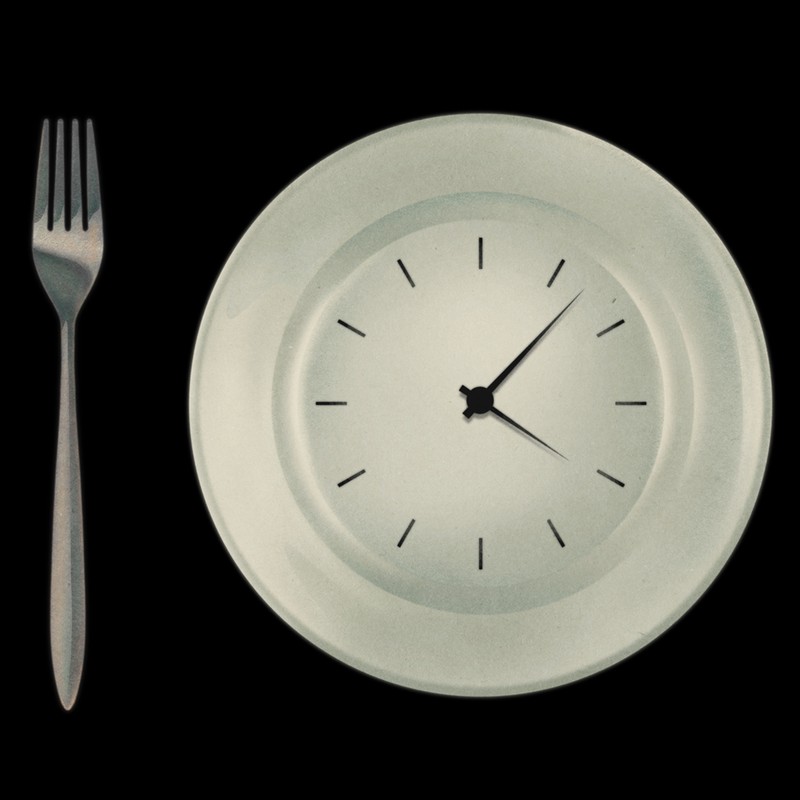
4 Reasons Why You Should Eat More Slowly
It’ll Improve Your Gut Health
Digestion begins in the mouth – saliva contains enzymes that help break down food particles before entering the digestive tract. The longer food is exposed to saliva through chewing, the easier it moves through your intestines and the less gas it creates. In a nutshell, slow things down, take the time to chew and you’ll kickstart the digestive process, explains nutritionist Clarissa Lenherr. “If you rush your meal, your digestion suffers,” she tells SL. “If you find yourself burping after eating, this could be the body’s way of getting rid of the extra air in your stomach, caused by eating too quickly. And if you are prone to indigestion and acid reflux, chances are you need to slow things down, as both of these happen when food is eaten in a rush.” Food that isn’t broken down properly can lead to indigestion as well as other GI problems, so slow things down to keep things ticking along without any issues. “Overloading your digestive system with too much undigested food can take its toll on your gut and overall health, as your body has to focus on breaking this down – and this is something that can be easily avoided,” Clarissa says.
You’ll Absorb More Nutrients
When your digestive system is in harmony, you’ll absorb nutrients far more efficiently from your food, Clarissa explains. “Rushing your food at mealtimes may lead to nutritional deficiencies in some people, as the stomach and small intestine struggle to absorb nutrients from foods that haven’t been broken down properly. In fact, one study found that people who chewed almonds 40 times per mouthful absorbed more healthy fats than when chewed just ten times, making nutrients such as vitamin E more accessible.” In an ideal world, each meal should take you 20 minutes to eat, says Clarissa, but 30 minutes is even better. “The optimal time to chew your food is 30 times per mouthful. This may sound daunting at first, so try and work your way up, and at the very least ensure you are chewing until your food is the consistency of applesauce for optimal digestion.”
You Could Lose A Few Pounds
A growing number of studies confirm that by eating slower, you’ll consume fewer calories. The reason is that it takes around 20 minutes for your brain to register that you are full. If you eat quickly, it’s easy to continue eating past the point when you’re full. “Studies show that people who eat quickly are likely to weigh more than those who don’t,” says Clarissa. “In fact, fast eaters are up to 115% more likely to be obese than slower eaters.” A separate study found that people who chewed each mouthful of food 40 times ate significantly less and dropped more pounds than participants who chewed each mouthful only 15 times.
You’ll Feel More Satisfied
Research on the topic suggests that eating slowly helps you to eat less. “But eating slowly can also help improve your food satisfaction. Slow things down and you’re better able to taste the flavours, textures and smells of the food you are eating,” says Clarissa. One study found that when women ate quickly at lunchtime, they reported more hunger an hour later than they did after a slowly eaten lunch. The message? Slow things down and you’ll eat less and feel fuller for longer.
Struggling to slow things down? Here Clarissa shares her top tips for more mindful eating…
Eat With Others: “Try to put your fork down in between bites,” says Clarissa. “This is one of the easiest ways to eat more slowly. Enjoy the conversation with those around you and take your time with your food.”
Be Present: Is your stomach actually growling? It’s easy to fall into a pattern of mindless eating. Setting regular mealtimes is important for regulating blood sugar, but it’s imperative that you check in on a day-to-day basis to see what your body actually needs. “Be present of the food you are eating and try to eat without the distraction of your phone or the TV,” she says.
Tune Into Your Appetite: “We often eat without thinking but try to gauge your appetite at every meal. If you’re too full to finish your plate, save your leftovers for lunch the following day.”
Drink Apart From Meals: It’s best to drink water 30 minutes before or after your meal, but not with your food. Drinking during meals dilutes digestive enzymes, slowing down the digestive process. Drinking away from meals helps reduce excess gas and bloating, too.
Stay Calm: “Play relaxing music while you eat to put you in a calmer mood – this will naturally help you eat more slowly. Take smaller bites and avoid putting another mouthful of food into your mouth whilst you are still chewing.”
For more information visit ClarissaLenherr.com
DISCLAIMER: Features published by SheerLuxe are not intended to treat, diagnose, cure or prevent any disease. Always seek the advice of your GP or another qualified healthcare provider for any questions you have regarding a medical condition, and before undertaking any diet, exercise or other health-related programme.
DISCLAIMER: We endeavour to always credit the correct original source of every image we use. If you think a credit may be incorrect, please contact us at info@sheerluxe.com.

